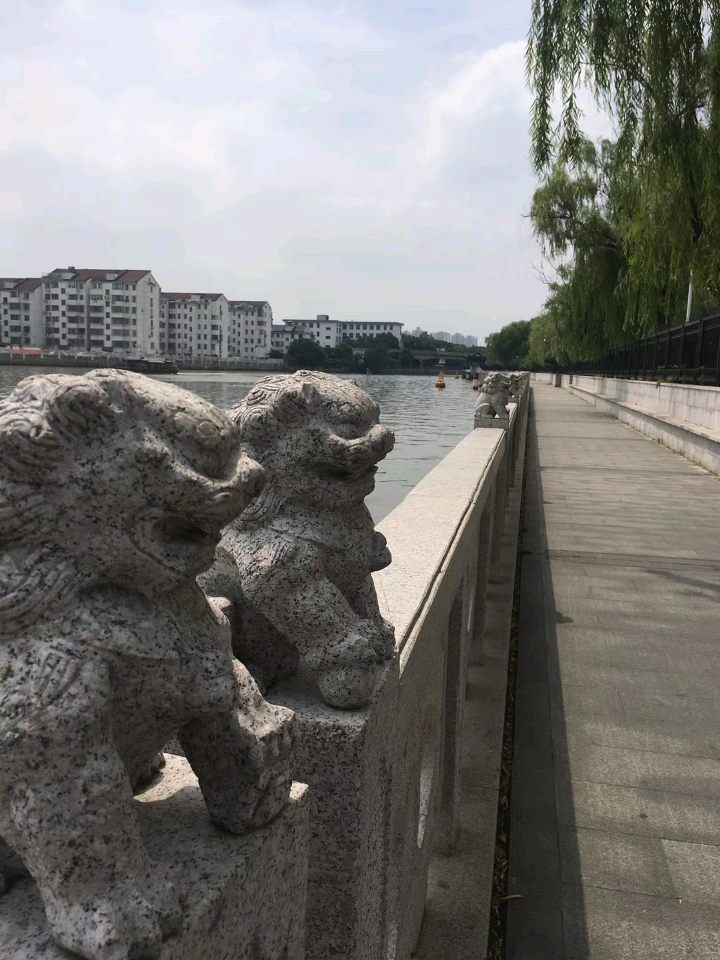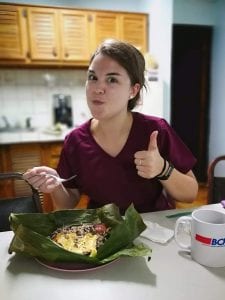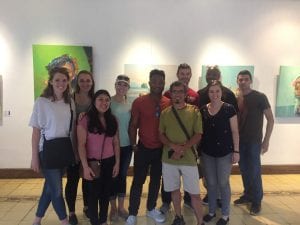The following is my STEP reflection on my amazing education abroad trip to London!
- Please provide a brief description of your STEP Signature Project.
- For my STEP Project, I traveled to London for a month as a part of the London Theatre Program through the OSU Theatre Department. While I was there, I attended 31 theatre performances in 30 days, as well as visited Stratford-upon-Avon, and exploredmuseums and galleries.
- What about your understanding of yourself, your assumptions, or your view of the world changed/transformed while completing your STEP Signature Project? Write one or two paragraphs to describe the change or transformation that took place.
- While England’s culture is not vastly different from America’s, it was my first time being out of the country for an extended period of time. As someone who is not as excited about world traveling, I found England to be a great balance of similarities and differences from American culture. It allowed me to be comfortable and enjoy myself without worrying about sticking out for cultural differences.
- One of the biggest cultural differences was in the theatre, which is my major and the focus of the program. In London, it is common for members of the public to go see theatre; going to see a play is not as big as an event as it is in the US. At the theatre, people dress more casually, but there is a deeper appreciation for theatre in the general pubic in London. Plays, especially new plays, are much more common, and work is acceptable even if it still needs some edits. In the US, it is much more difficult for new plays to get off the ground. Experiencing the theatre culture in London opened my eyes to what cultural appreciation can look like in the theatre world. The vast appreciation of theatre in London seems almost unachievable in the US to me, but I hope our culture can move in that direction.
- What events, interactions, relationships, or activities during your STEP Signature Project led to the change/transformation that you discussed in #2, and how did those affect you? Write three or four paragraphs describing the key aspects of your experiences completing your STEP Signature Project that led to this change/transformation.
- There were many events that had deep impact on me. The fist that comes to mind is visiting the grave and birthplace of William Shakespeare. Shakespeare’s works have always been important in my life, and this program had a slight focus on Shakespeare, having us attend three different plays written by the Bard. I have taken an unofficial Shakespeare focus in college, and do my best to take a class or two on Shakespeare every semester. Because of my love for the great author, it was almost a religious experience seeing Shakespeare’s birthplace and grave at Stratford upon Avon. The experience made a prolific figure more real to me; it reminded me that he is not a myth, he was a real man who was able to write so much theatre. As I grow older, I keep learning that even the most idolized people are just people nonetheless, so it was a transformational experience to get to know Shakespeare better.
- Another event on the trip that had a deep impact on me was the ability to see OSU graduate Sifiso Mazibuko in Hamilton: An American Musical. While I had already seen Hamilton in Chicago, it was awesome to have another chance to see it abroad. Sifiso, MFA in Acting 2015 OSU graduate, was the stand-by for Aaron Burr, one of the leads in the production. This means he not the main person who plays the part, but he can play it at any time if the actor is out. Three days before I saw the production, Sifiso came and spoke to our class about his experience as an actor in the show. Talking with him was amazing, because not only was it great to see a successful fellow OSU Theatre Department person, but it was great to hear about everything he had been working one since he left college. Sifiso’s stories about his wife, who is also an OSU Acting MFA grad, struggling to get work in London was a reminder of why I did not want to go into acting in the first place, and that I was correct in pursuing outreach theatre instead of acting.

Sifiso and I after his talk with our class!
- Another transformational moment for me was being able to see shows in and simply work on schoolwork in the National Theatre. In London, the National Theatre is funded by the government and puts on very high quality productions. Recent productions that have had tours in the United States include War Horse and The Curious Incident of the Dog in the Nighttime, two of my favorite productions. However, the theatre space is more than just a lobby and a theatre, it is also a café, restaurant, and free public space. Several times throughout the trip, I went to the National Theatre to simply sit and work on homework, as I might do at Starbucks or the library. In that moment, I felt like I was truly a theatre major, as I sat in a place I have wanted to see theatre in since high school. The US does not have a National Theatre equivalent, and in the moment I realized how much our country is missing out for theatre makers.
- One of my final favorite transformational moments was seeing a new play entitled Jellyfish. The 4 character play stars a woman with down syndrome, and also includes a man with autism. Both of the characters were played by someone who is diagnosed with the same condition as their character. As someone who works with theatre people with disabilities, it was awesome to see people with disabilities on stage in a play that was meant for both adults with and without disabilities. The show talked about a lot of serious topics, but did not dumb them down for the audience because it was about people with disabilities. The play gave respect to the disability community in a way I rarely see in any form of media that included an actor with a mental disability. I was excited and inspired to see a population I care so much about on stage in a real to life manner.
- Why is this change/transformation significant or valuable for your life? Write one or two paragraphs discussing why this change or development matters and/or relates to your academic, personal, and/or professional goals and future plans.
-
- The broad amount of theatre I have seen abroad has expanded me as a theatre goer, a theatre scholar, and a theatre maker. While the trip did not change my career goal, which is to make and teach arts programs for people with special needs, it did inspire me to keep seeing all sorts of theatre, regardless of the narrow focus I have on the type of theatre I am making. I was inspired to give new plays a better chance, while in the past I have always shied away from watching new plays. With the amount of small theatre companies in Columbus, I am grateful that I have been inspired to keep seeing new shows, because I am in a great place to access new American theatre. I don’t remember falling in love with Shakespeare and theatre in general, but this trip allowed me to fall in love with theatre all over again. It reminded me of the importance of the work I do, and gave me renewed pride in my theatre major.













































